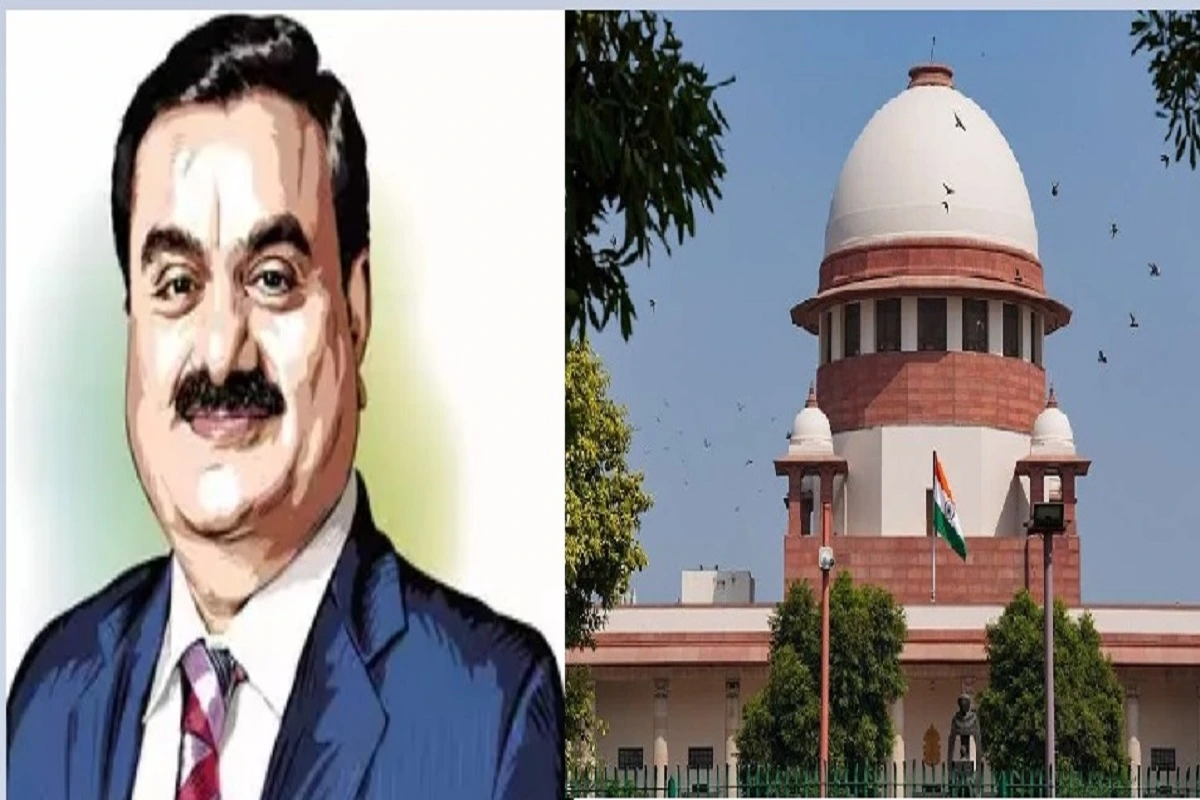
Now ball is in SUPREME court
Until about a month ago, hardly anyone had heard of the short-selling firm Hindenburg. However, thanks to the turbulence caused by its report on the financial management of the Adani group, it is now a well-known name in the Indian share markets. Investors have lost nearly 12 lakh crore rupees, and the company has lost a whopping $140 billion in just over a month. The group’s owner, Gautam Adani, has slid from his position as the world’s second-richest person in September last year to the 38th position on Forbes’ list. His net worth decreased from $156.3 billion to below $60 billion during the period.
Such a loss of wealth is not unprecedented in the corporate world. Hong Kong’s Techtronic Industries recently lost $4 billion in a week after a mystery short-selling company, Jehoshaphat Research, released a 60-page report accusing the company of inflating profits for the past decade. Techtronic’s market value came down by $670 million in just two days, and its shares dropped by 19% after the report was released. It is noteworthy that Hindenburg had also levelled allegations of manipulating its share prices by fudging account books. Techtronic Company’s response was similar to that of Adani, as its co-founder, Horst Julius Pudwill, dismissed the report and threatened legal action against Jehoshaphat.
The Supreme Court has constituted a six-member committee headed by its former judge AM Sapre to investigate the Hindenburg allegations and their aftermath. Other members of the committee include famous banker KV Kamath and Infosys co-founder Nandan Nilekani. The bench presided over by Chief Justice DY Chandrachud has also instructed the Securities and Exchange Board of India (SEBI) to complete its investigation into the matter in two months. The Adani group has welcomed these developments, and the markets have finally started reposing some confidence in the company’s shares, with their market capitalization climbing up by about 1.5 lakh crores in just three trading sessions. Gautam Adani has scaled back to the 28th spot in Forbes’ list of top billionaires.
Navigating the storm raised by Hindenburg’s report is not easy for investors and the company. However, the entire episode and also Jehoshaphat raise serious questions about the modus operandi of such short-selling firms. Success brings detractors, and even more so when you have grown as phenomenally as the Adani group during the past three decades. The corporate giant has its footprints in diverse fields, from seaports and airports to power, mining, retail, and renewable energy sectors. It is a common understanding that the Indian corporate sector, comprising companies such as Adanis, Ambanis, and Tatas, has an important role to play in realizing PM Narendra Modi’s dream of growing India’s economy to $5 trillion and eventually turning India into a developed nation by 2047. Could the Hindenburg report be a calculated conspiracy against the Adani group to derail these ambitions? Are foreign forces at play here?
Can the Supreme Court-monitored probe bring out the foreign aspect of the entire saga? One of the most obvious reasons for doubting Hindenburg’s report is the company’s stated interest in Adani group’s market downfall, as it is a short-selling company. In layperson’s terms, it borrows market assets such as stocks or bonds to immediately sell them on the open market. After selling the asset, the company waits for the price to fall and then buys the same asset back at a lower price, returning it to the broker or investor from whom it was borrowed. The difference between the sale price and the buyback price is short-selling profit. The Hindenburg Research has not denied that the purpose of the report was to reap heavy profit from this strategy. However, the timing of the release of the report is even more curious. It came out on the heels of the Adani group’s much-awaited Follow-on Public Offer (FPO). An FPO is a type of securities offering in which an already publicly traded company issues new shares of its stock to the public. Adani Enterprises had hoped to raise Rs. 20,000 crores from the proposed FPO, but it had to be rolled back, and investors’ money was returned, despite the fact that the FPO was fully subscribed. Gautam Adani claimed it was done to protect the investors from market volatility.
The 32,000-page Hindenburg report raises 88 questions on the Adani group. The company claims the answers to at least 21 of these questions are already in the public domain. The group’s formal rebuttal also points out that many of the facts mentioned in the report were actually disclosed in its public declarations. The allegations in the report can be broadly summarized as inflating profits of some of the group’s ventures, irregularities in its balance sheets, and borrowing against promoters’ shares. The report also draws attention to the hefty amount of loan that the group is liable to pay. The group, on the other hand, clarifies that its total liabilities are not high when seen in proportion to its assets. Therefore, it is at no risk of default. But the corporate giant’s clarifications have done little to arrest its market losses.
The combined market capitalization of the group’s 10 listings has tumbled from 19.19 lakh crore rupees on January 24 (the day when Hindenburg released its report) to 7.5 lakh crore rupees on February 22. This accounts for nearly 60 percent of the total losses incurred by Indian stock markets ever since. One of the consequences was a decrease in India’s share in global market capitalization from 4 per cent in October 2022 to below 3 per cent. France and the UK are now ahead of India on this count, and the country stands in the seventh position globally. According to Bloomberg’s report, the British equity market value stands at $ 5.1 billion more than that of India at $ 3.11 trillion.
In other words, the UK’s share market has once again become larger than that of India for the first time after May 29, 2022. Earlier, rating agency Fitch’s CreditSight report had also claimed that the Adani group was deeply overleveraged. The report released in August 2022 had a similar
impact on Adani’s shares. However, the group managed to persuade Fitch to come up with an amended report after a month. In contrast, the Hindenburg company has shown no inclination for reconciliation, strengthening doubts about its intentions. Several sections of foreign media have raked up the entire controversy. Forbes has updated Gautam Adani’s profile page with objectionable observations. There have been several attempts to drag the Indian government into the imbroglio.
The report appears to be a sinister foreign conspiracy, as it has endangered over 20,000 livelihoods directly associated with the Adani group, in addition to the many others who indirectly rely on the group’s business for sustenance. The hard-earned money of hundreds of thousands of small investors was wiped out in the blink of an eye. Unfortunately, India’s political opposition has played along with these nefarious designs. It has chosen to believe in a short-selling company instead of supporting the country’s own industrialists. Prioritizing political interests over the welfare of the country has harmed the opposition parties as much as it has damaged the nation. One can only hope that they will now stop politicizing the issue and trust the Supreme Court-appointed committee. Hopefully, the committee will not only reveal the truth of the matter but also suggest measures to prevent the recurrence of such episodes.


















